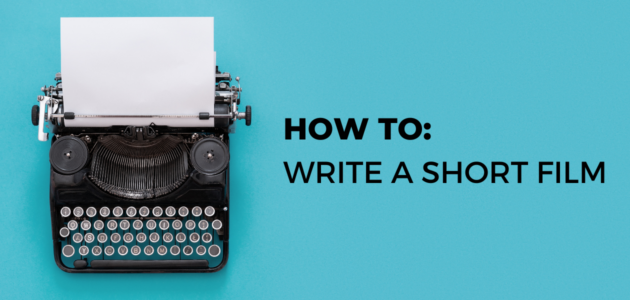
How To Write A Short Film
Short films are a medium of story telling unlike any other. Short films are less a feature squashed into a smaller time frame, and more a stand alone story telling form. The beauty of the short film is the ability to say so much about a time, place or person in a short period of time. That’s key to short film success; rather than filling your script with big picture themes, characters and stories, focus on the kernel of an idea; get straight to the heart of your story.
First of all, why this story and why in a short film? Think about what’s happening in the world right now, or even just around you, and why audiences would engage with that. Your script doesn’t have to showcase all sides and aspects of an issue, but rather your unique perspective into a world that audiences can understand and perhaps relate to. Often telling a really personal story truthfully will access a greater universal truth that audiences will engage with.
Shorts based on tried and tired themes can still be amazing. But that’s the safe path. Your film should say something different and something relevant as a point of difference. Explore well known ideas from a different perspective, for example, the role of military chefs in war-zones. You see what I mean? It’s a new way of looking at something familiar. (More on coming up with short film ideas).
Comedies often avoid controversy. In fact lots of comedic shorts have their successes based on their “Seinfeldian” approach to the script, meaning “a short about nothing”. The script often sets up and executes a joke, resolving everything in a neat little package. There’s nothing wrong with this. However, for it to be memorable, the script has to be more than just a clever joke. Its setting, characters and dialogue have got to be unique enough to allow an audience to be transported away from where they are for those minutes. So go against the grain and think of the unexpected. Catch your audience out by deliberately switching what seems to be an inevitable ending. Focusing on what makes your script memorable is a clever way of approaching writing. Sometimes following a formula takes the pressure off and let’s you write more freely. Surprise yourself and your audience.
The standard length for a short film is seven to twelve minutes. There’s not enough time for exposition or an incredible story arc. Short film audiences want to see characters struggling with one problem or one question. You don’t even need a resolution. Some of the best short films leave you walking away with the same posed question in your head. Leaving your audience thinking means you’ve done something right. Your characters and dialogue should be informative enough to give context but to also clarify why we should care about what happens. Perhaps we meet them at a penultimate time of their lives, mid-way through a challenge, or dealing with the fall-out of an event. Regardless, you can tell a lot about a character from the way in which they struggle. Wasting precious minutes on telling your character’s back stories and traits is useless. Show the character’s personality by having them problem solve and engage in the world. Shorts are about what’s happening, and not so much about what’s happened.
So, something has to happen. Something strong and abnormal enough for engagement to peak immediately. One way to approach this is to put the extraordinary into the ordinary. Whether this means an average character or average setting, it doesn’t matter. If a sizeable-enough event occurs within the opening of your script, to the point that it is unexpected and un-assumed, audiences will be hooked. Nailing this event first, gives you plenty of room for movement. Now you decide to deal with the fall-out of the event, the lead up to, or the process of the event itself.
Keep your head realistic. Your script can be wacky and wonderful and from all sorts of dimensions. But in conceptualising and working out your story, think about the limitations you may have for it being shot. What kind of shots are you going to need and how are you going to do it? Are you going to do it or is someone else going to do it? Is it set in a location that you could reasonably gain access to? While these concerns shouldn’t necessarily restrict your creative output, they’re important in making sure that your script makes it off the page and onto the screen.
Short films can inspire, teach and entertain us. The short time frame allows for something powerful to hit you immediately and leave you wanting more. Approach your empty page with your unique perspective, and give yourself the freedom to explore your creativity and tell your story.

Leave a Reply